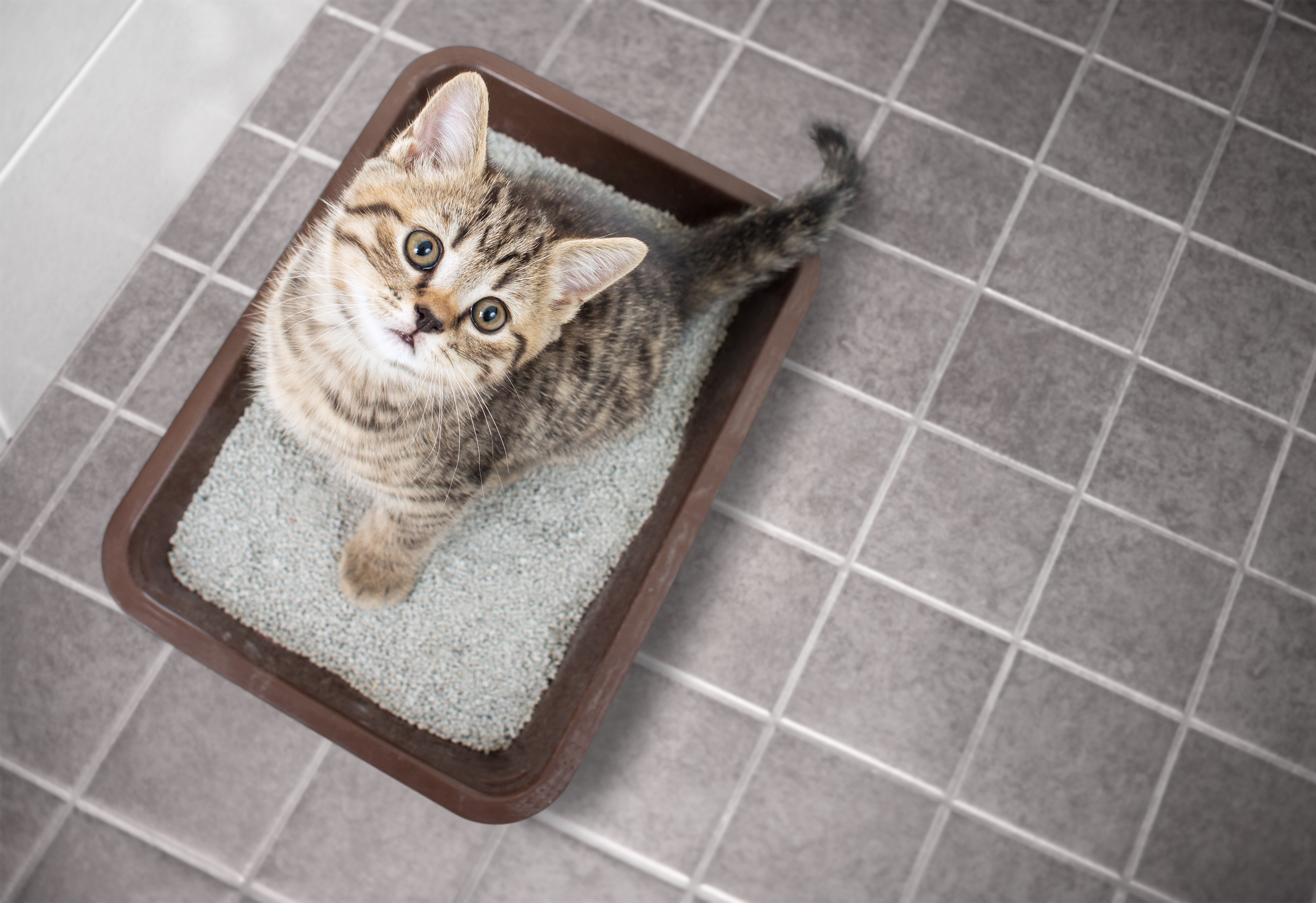
Welcome back to our quarterly blog series, Check Up with Blum! With each entry, we are discussing a topic about canine or feline health that affects your Chicago pet. Join us this month as we cover a new topic with Dr. Sarah Baker of Blum Animal Hospital and learn about how you can help keep your best friend healthy and happy in the big city!
This time on Check Up with Blum, we are talking all about litter boxes! Keeping your kitty happy with their litter box is one of the biggest goals of any cat parent, and anyone who has ever lived with a cat will let you know that it’s no fun when there are litter box issues! Read on to learn more about litter boxes from a professional!
First, let’s discuss some litter box basics, such as the best kinds of litter to use, the number and kinds of litter boxes to have, where to put them, and basic cleaning rules.
Regarding the type of litter box to get for your kitty, Dr. Baker states that the best kind of litter box is specific to your individual cat. Most cats have a preference as to open or hooded, so be sure to find your cat’s favorite or try to have multiples of each around the house. No matter the type of litter box you have, it’s important to remember that litter should be filled to be a few inches high, and you should clean the litter box at least once a day. According to Dr. Baker, the best kind of litter to use is also very cat specific. Some cats prefer clay, crystals, respiratory relief, pine, and more. Once you find the litter your cat prefers, stick to it!
When considering how many litter boxes to have, Dr. Baker states that “the veterinary behaviorist recommendation is to have one additional litter box per number of cats in the home. For example, if you have two cats, you should have three boxes.” She also suggests that the best location for a little box in your home is in a quiet, well lit, low traffic area. Try to avoid areas near the washer/dryer or bathroom where loud, unanticipated sounds or noises could occur. If, for any reason, you need to move your kitty’s litter box, Dr. Baker tells us that the best way to relocate a litter box is actually not to move the current box, but rather add a new litter box to a new location. The use of pheromones (like Feliway) via diffuser or spray would be beneficial during any periods of change to keep your feline friend feeling calmer!
Now that we’ve covered some basics, let’s talk a little more about cat behaviors around litter boxes.
If you bring home a kitten and are worried about making sure they use their litter box, Dr. Baker says there’s not too much to worry about as most kittens do not need to be taught! They have an innate ability to know where the litter box is and how to use it properly even at a very young age.
As your cat gets older, if you ever notice a change in his or her behavior around the litter box, be sure to note those and let your veterinarian know! For instance, if your cat begins to lay down in his or her litter box as a new habit, this is something you should bring up to your veterinarian. If your kitty begins to urinate and defecate outside of their litter box, Dr. Baker states that there is not one typical reason why they may be exhibiting that new behavior. The reasons for this change can range from medical to behavioral causes. When you notice any inappropriate litter box behavior, that would be an important time to contact your veterinarian.
Having a happy kitty means helping them feel comfortable and safe, especially when it’s time to potty. Put some thought into your litter and litter box purchases, and be sure to stick with what your cat likes best! If there is ever any question about your cat and his or her relationship with the litter box, don’t be afraid to ask your veterinarian!
Thank you to Dr. Sarah Baker at Blum Animal Hospital for her insight into litter box issues and questions. We appreciate her hard work in making sure that every Chicago pet has the best life possible!
Blum Animal Hospital is located at 3219 N. Clark Street and has been caring for Chicago’s pets since 1952. They have been accredited by the American Animal Hospital Association (AAHA) since 1972. To learn more about Blum, their Fear Free certification and the calming techniques they use, check out their website!
Windy City Paws is a Chicago dog walker and petsitter committed to providing helpful information to Chicago dog and cat owners through its blog.
